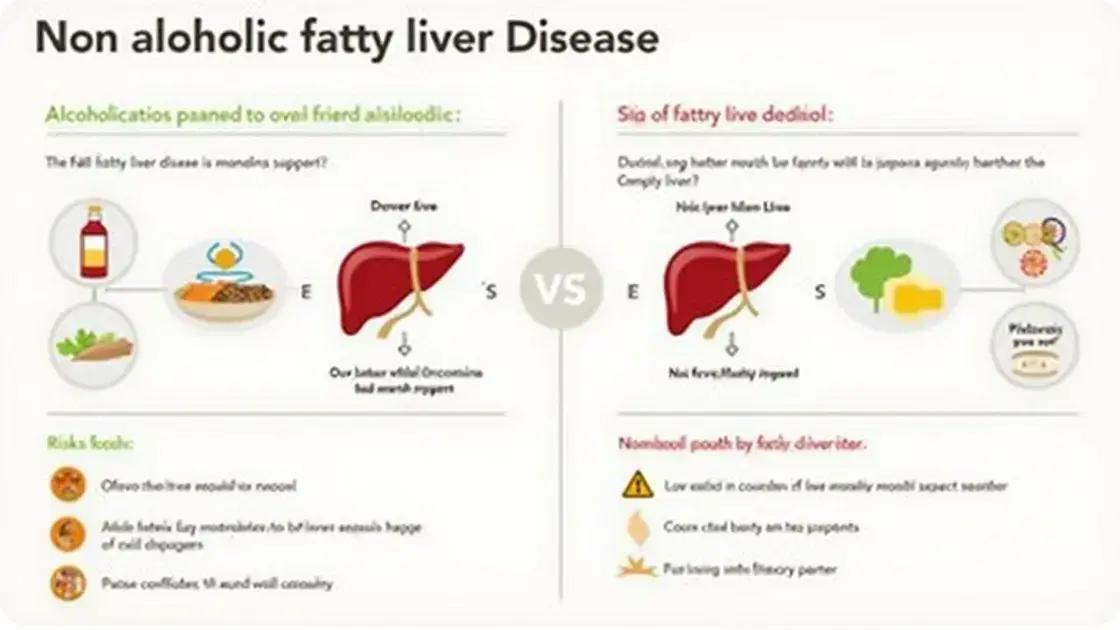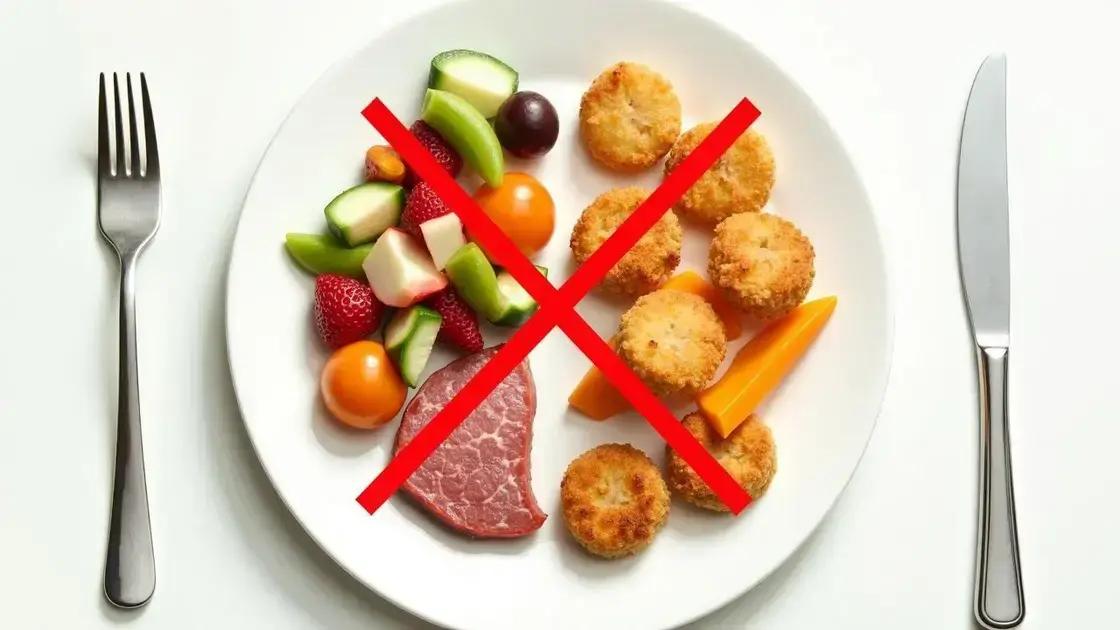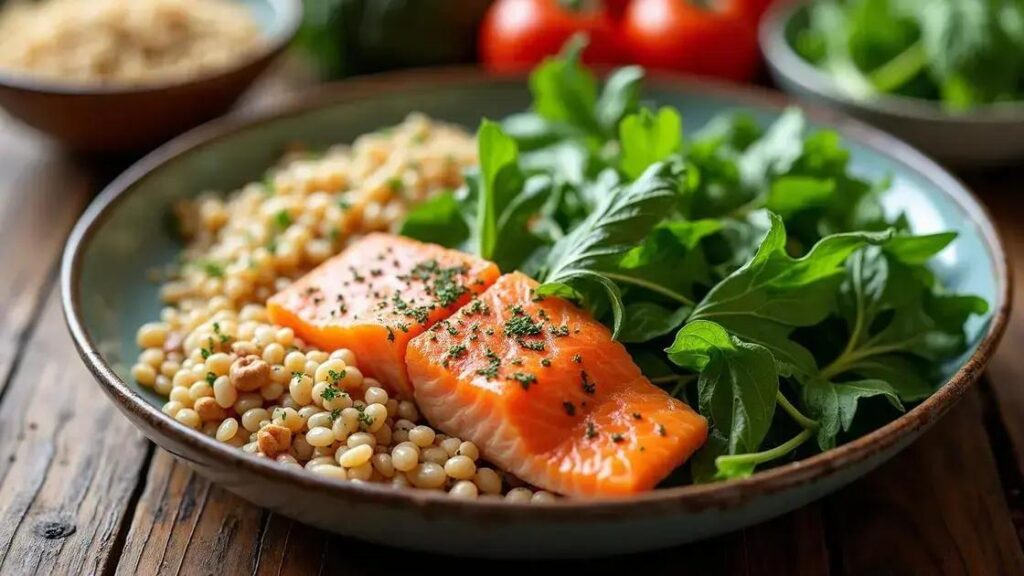To prevent fatty liver disease with diet adjustments, incorporate lean proteins, whole grains, and plenty of fruits and vegetables while avoiding sugar, fried foods, and alcohol. Sustainable lifestyle changes include staying active and setting realistic goals for long-term liver health.
Are you concerned about your liver health? Fatty liver disease is becoming increasingly common, but the good news is that diet adjustments can make a significant difference! In this article, we will delve into how specific changes in your diet can help you prevent fatty liver disease and promote overall well-being. By understanding what foods to embrace, what to avoid, and how to adopt a healthier lifestyle, you can take control of your liver health today.
Understanding Fatty Liver Disease

Fatty liver disease occurs when excess fat builds up in the liver. It is often labeled as a silent disease because many people show no symptoms. If left untreated, it can lead to more severe liver conditions, including cirrhosis. Understanding this disease is essential for prevention and management.
There are two main types of fatty liver disease: alcoholic fatty liver disease (AFLD) and non-alcoholic fatty liver disease (NAFLD). AFLD is caused by excessive alcohol consumption, while NAFLD occurs in people who drink little or no alcohol. NAFLD is more prevalent and can be linked to obesity, diabetes, and high cholesterol.
Recognizing Symptoms
Often, fatty liver disease does not present noticeable symptoms. However, some individuals may experience fatigue, discomfort in the upper right abdomen, or an enlarged liver. Regular check-ups can help in early detection through blood tests or imaging.
Risk Factors
Several factors can increase the risk of developing fatty liver disease. These include obesity, type 2 diabetes, hypertension, and high lipid levels. Lifestyle choices, such as poor diet and lack of exercise, also contribute significantly to the risk.
Moreover, certain medications and rapid weight loss can affect liver health. Understanding these risks can guide individuals towards necessary lifestyle changes to prevent fatty liver disease effectively.
Importance of Early Detection
Early detection of fatty liver disease is crucial for effective management. Regular screenings can help identify the condition before it progresses. By adopting a healthier lifestyle—maintaining a balanced diet, engaging in regular exercise, and avoiding alcohol—individuals can mitigate the risks associated with fatty liver disease.
Key Dietary Adjustments

Making key dietary adjustments is crucial for preventing fatty liver disease. A balanced diet can help reduce fat buildup in the liver and promote liver health. Here are some essential dietary changes to consider:
Reduce Sugar Intake
Limiting sugar, especially from processed foods, is vital. High sugar consumption can lead to fat accumulation in the liver. Focus on consuming natural sugars found in fruits instead.
Increase Healthy Fats
Incorporate healthy fats into your diet, such as those found in olive oil, avocados, and nuts. These fats can help reduce liver inflammation and improve overall liver function.
Choose Whole Grains
Opt for whole grains like brown rice, quinoa, and whole wheat bread. These foods are high in fiber, which aids in digestion and prevents fat buildup in the liver.
Eat More Fruits and Vegetables
Fruits and vegetables are rich in vitamins, minerals, and antioxidants. Aim to fill half your plate with these foods, focusing on colorful options like berries, leafy greens, and oranges. They can also help combat inflammation.
Stay Hydrated
Drinking enough water is essential for liver health. Aim for at least 8 glasses a day to help flush toxins and maintain proper liver function.
Watch Portion Sizes
Be mindful of portion sizes to avoid overeating. Eating smaller, balanced meals throughout the day can help maintain a healthy weight and support liver health.
By implementing these dietary adjustments, you can take significant steps toward preventing fatty liver disease and improving your overall health.
Foods to Embrace and Avoid

Making the right food choices is essential in preventing fatty liver disease. Here are some important foods to embrace and others to avoid:
Foods to Embrace
1. Lean Proteins: Include lean meats such as chicken, turkey, and fish in your diet. These proteins are low in fat and promote muscle health.
2. Fruits and Vegetables: Aim to eat a variety of fruits and vegetables. Options like spinach, kale, berries, and apples are high in antioxidants and essential vitamins, helping to reduce liver inflammation.
3. Whole Grains: Switch to whole grains like brown rice, quinoa, and oats. These grains are high in fiber, which aids in digestion and helps control blood sugar levels.
4. Healthy Fats: Replace saturated fats with healthy fats from sources like avocados, nuts, and olive oil. These fats can improve cholesterol levels and overall heart health.
5. Water: Staying hydrated is crucial. Water helps in flushing out toxins and supports liver function.
Foods to Avoid
1. Sugary Foods: Reduce or eliminate processed foods high in sugar, like candies, pastries, and sugar-sweetened beverages. Excess sugar can lead to fat accumulation in the liver.
2. Fried Foods: Avoid fried foods as they are often high in unhealthy fats. Choices like French fries, fried chicken, and doughnuts should be minimized.
3. Refined Carbohydrates: Stay away from white bread, pasta, and pastries made with white flour. These foods can spike blood sugar and contribute to liver fat.
4. Alcohol: Alcohol consumption can severely impact liver health, especially in individuals with fatty liver disease. It’s wise to limit or avoid alcohol altogether.
5. High-Sodium Foods: Minimize processed and packaged foods that contain high levels of sodium. Excess salt can lead to water retention and increased blood pressure, putting more strain on the liver.
Tips for Sustainable Lifestyle Changes

Making sustainable lifestyle changes can greatly benefit your liver health and overall well-being. Here are some practical tips to incorporate into your daily routine:
Start Small
Begin with small changes that feel manageable. This could be swapping sugary drinks for water or adding one serving of vegetables to your meals each day.
Stay Active
Aim for at least 30 minutes of physical activity most days. Whether it’s walking, cycling, or dancing, find an activity you enjoy to help you stay consistent.
Set Realistic Goals
Establish achievable goals for your diet and physical activity. Instead of trying to change everything at once, focus on one or two areas until they become a habit.
Plan Your Meals
Creating a meal plan for the week can help you make healthier choices and avoid last-minute unhealthy options. Include a variety of foods to keep your meals interesting and balanced.
Support System
Share your goals with family or friends. Having a support system can motivate you to stick with your changes. Consider joining a group or finding a buddy with similar health goals.
Monitor Your Progress
Keep track of your dietary changes and exercise routine. Use a journal or an app to note what you eat and your activity levels. Seeing your progress can encourage you to stay on track.
Be Patient with Yourself
Making lifestyle changes takes time. Be patient and celebrate small victories. If you face setbacks, don’t be hard on yourself; just get back on track as soon as you can.
Commit to a Healthier Lifestyle for Your Liver
Preventing fatty liver disease is within your reach by making conscious dietary adjustments and lifestyle changes. By embracing healthy foods, staying active, and implementing sustainable habits, you can significantly improve your liver health.
Remember to start small and set achievable goals, as every positive change contributes to your overall well-being. Surrounding yourself with supportive friends or family can also motivate you along the journey towards a healthier lifestyle.
As you make these changes, stay patient and track your progress. Over time, these adjustments can lead to a happier, healthier life and help protect one of your most vital organs—your liver.
FAQ – Frequently Asked Questions about Preventing Fatty Liver Disease
What is fatty liver disease?
Fatty liver disease occurs when excess fat builds up in the liver, often without noticeable symptoms.
What dietary changes can help prevent fatty liver disease?
Key dietary changes include reducing sugar intake, increasing healthy fats, choosing whole grains, and eating more fruits and vegetables.
Are there specific foods I should avoid?
Yes, avoid sugary foods, fried items, refined carbohydrates, alcohol, and high-sodium processed foods to protect your liver health.
How can I make sustainable lifestyle changes?
Start small, stay active, set realistic goals, plan your meals, and seek support from friends or family for motivation.
Why is hydration important for liver health?
Staying hydrated helps flush out toxins and supports optimal liver function, which is crucial for overall health.
How long will it take to see improvements in my liver health?
Improvements can vary, but with consistent dietary adjustments and lifestyle changes, you may start to notice positive effects within a few weeks to months.













